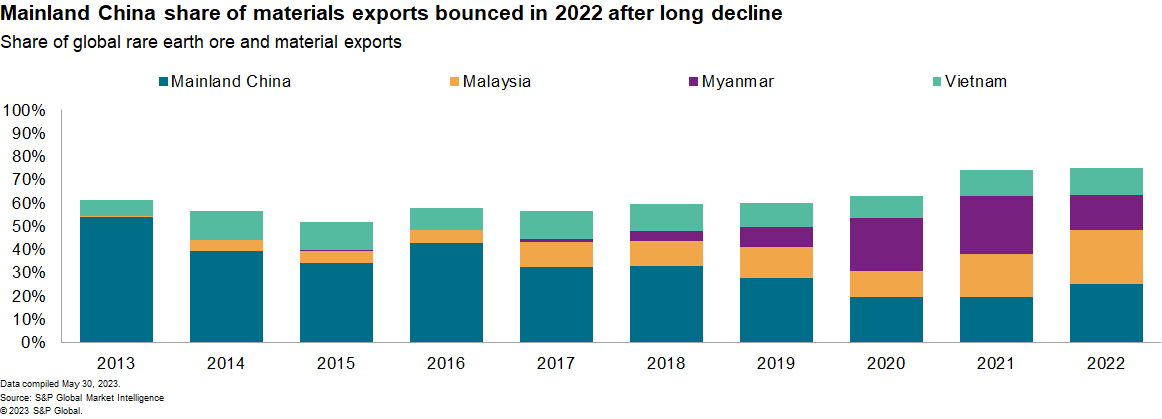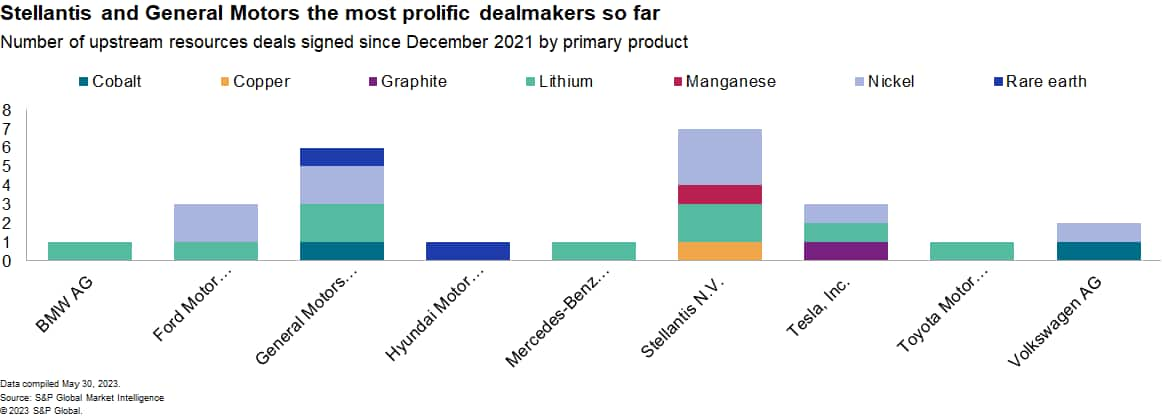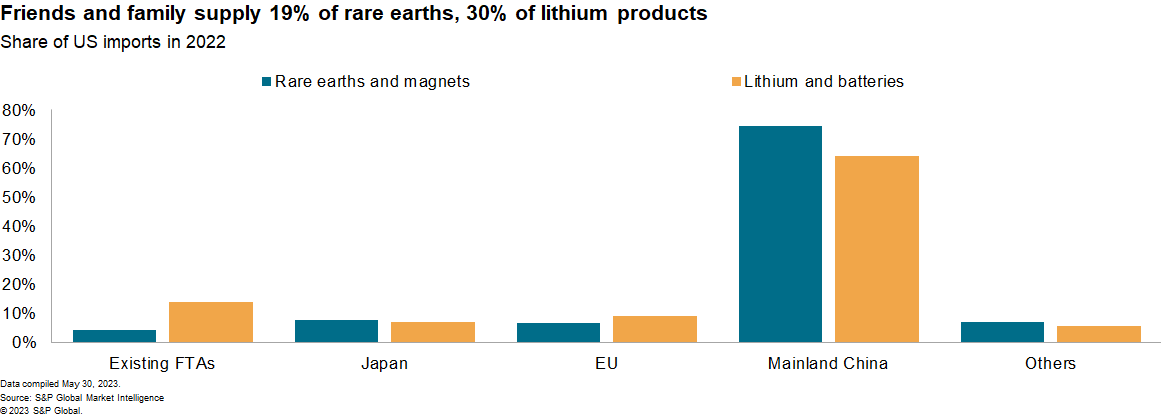Featured Topics
Featured Products
Events
S&P Global Offerings
Featured Topics
Featured Products
Events
S&P Global Offerings
Featured Topics
Featured Products
Events
S&P Global Offerings
Featured Topics
Featured Products
Events
Financial and Market intelligence
Fundamental & Alternative Datasets
Government & Defense
Professional Services
Banking & Capital Markets
Economy & Finance
Energy Transition & Sustainability
Technology & Innovation
Podcasts & Newsletters
Financial and Market intelligence
Fundamental & Alternative Datasets
Government & Defense
Professional Services
Banking & Capital Markets
Economy & Finance
Energy Transition & Sustainability
Technology & Innovation
Podcasts & Newsletters
BLOG — Jun 22, 2023

By Chris Rogers
The US Inflation Reduction Act (IRA) is designed to encourage investment throughout the supply chain for electric vehicles and renewable power generation, including the sourcing of raw materials. Price volatility in lithium, nickel and cobalt may have contributed to the decision by nine major automakers to sign 25 deals to secure raw materials across the electric vehicle supply chain. Eligibility for supplies from free-trade agreement partners, complex processing requirements for rare earths and availability of labor means the IRA might not lead to significant investments in new mining capacity in the US.
Me-first: The return of industrial policy
The US Inflation Reduction Act does not just incentivize the assembly of electric vehicles or even just the batteries in them: It also seeks to promote the localization of critical minerals sourcing used in electric vehicle components including batteries and motors.

Mainland China dominates the production of rare earths, though distribution is more diverse. S&P Global Market Intelligence data shows mainland China represented just 25% of global exports in 2022, followed by Malaysia and Myanmar.
Lithium, shipped as carbonate, hydroxide or spodumene forms, is core to most of the major deployed battery chemistries. Market Intelligence data shows that the leading exporters of lithium materials in 2022 were Australia and Chile.
The new integration: Automakers park next to miners
The price of lithium carbonate for delivery into mainland China jumped by 1,097% in fourth quarter 2022 compared with fourth quarter 2021, according to S&P Global Market Intelligence data.
There's been a subsequent decline, with lithium prices having dropped by 7% in first quarter 2023 versus fourth quarter 2022. S&P Global Market Intelligence forecasts call for a further decline through the end of 2024 as markets normalize.
Such price volatility creates challenges for supply chain decision-makers. That may have contributed to the decision by some buyers to secure supplies via long-term contracts.

Mainland China dominates the production of rare earths, though distribution is more diverse. S&P Global Market Intelligence data shows mainland China represented just 25% of global exports in 2022, followed by Malaysia and Myanmar.
Lithium, shipped as carbonate, hydroxide or spodumene forms, is core to most of the major deployed battery chemistries. Market Intelligence data shows that the leading exporters of lithium materials in 2022 were Australia and Chile.
Leg-up for suppliers down-under: Challenges for implementation
The IRA may be in-force, but it won't necessarily lead to an explosion in new mining investments in the United States specifically, with at least three challenges faced.

First, the IRA specifically allows for imports from countries with which the US has an existing free trade agreement (FTA) to be treated as being domestic. That may displace the need for local materials and processing in the US. Market Intelligence data shows existing FTA partners including Australia already accounted for 4% of rare earth material and product imports and 14% of lithium material and product imports in 2022. Japan also has a specific critical minerals agreement with the US. The EU and US are also negotiating a deal, so far without a conclusion.
Second, for rare-earths specifically there may be challenges with building up capacity and processing, particularly in refining where toxic by-products are involved.
A third challenge is the availability or otherwise of skilled labor for mining and chemical engineering roles. The IRA also has requirements for wages and the availability of apprenticeships to access the highest levels of financial support.
Subscribe to our supply chain newsletter
This article was published by S&P Global Market Intelligence and not by S&P Global Ratings, which is a separately managed division of S&P Global.